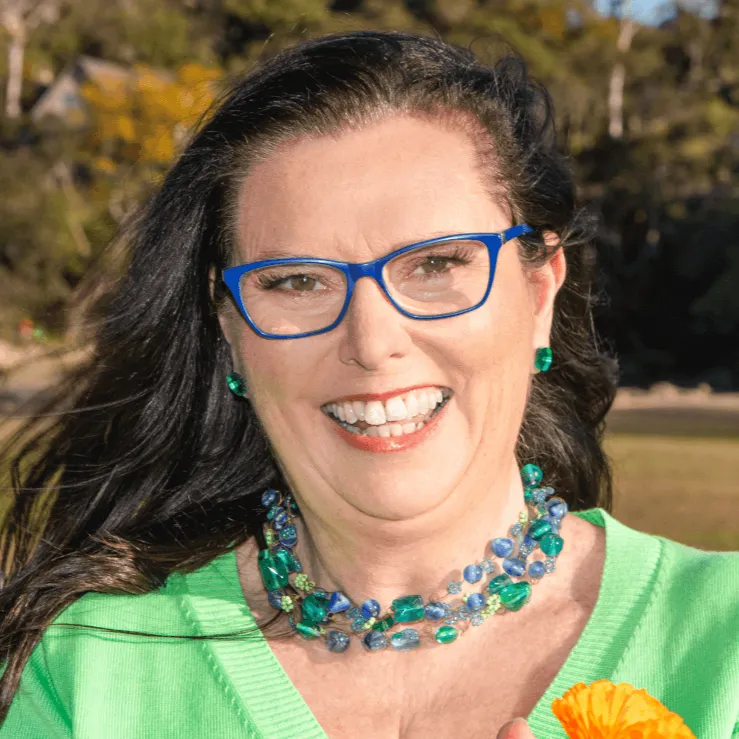
2026 NATURAL HEALTH SOCIAL MEDIA CALENDAR
Just $27 (save $10)
BLOG
Strategies, tactics and mindset tools to help you grow and manage your natural health, wellness or spiritual business.

Self talk for business problems
Constructive self-talk for tackling business problems
Is the way you talk to yourself about problems in your business expanding your thinking, or limiting it?
Of all the many enlightening concepts I’ve come across in my 15+ years running my natural health marketing and copywriting business, one has stuck in my head and triggered a real shift in my thinking, the way I talk to myself, and my approach to tackling problems.
THE BRAIN LOVES SUSPENSE
The light bulb moment occurred when I attended a presentation by neuroplasticity expert Dr Helena Popovic, where she talked about ways to boost your brainpower, and said, “The brain loves suspense”.
As a murder mystery addict, I love suspense in my movies and novels, but if you’d asked me whether I like it in my life, I would’ve answered with a very firm “No”.
I’ve always believed that nothing is more exhausting than feeling unable to influence something important and having to wait to find out how it’s going to turn out.
When faced with a situation that seems outside your control or a business problem with no clear-cut solution, time just seems to drag on and on.
It’s almost impossible to stop your mind nagging at the issue, trying to find ways to solve it, working out how you’re going to cope if the outcome isn’t what you’re hoping for, and looking for clues as to which way things are headed.
PUT YOUR FOCUS ON "HOW"
Previously, I’d always considered these open-loop mental conversations to be examples of the energy-draining issues that are sometimes called ‘tolerations’. But learning that the brain is intrigued by mystery and the unknown made me reconsider.
Rather than viewing “Will this turn out for the best?” situations as though there’s a binary outcome (either a relieving “Yes” or a heart-sinking “No”), I decided it was time for some reframing.
The powerlessness and passivity in that question doesn’t sit well with me and really isn’t my style. Instead, I now re-phrase the question as “How will this turn out for the best?”
Helena reckons the word “How” helps get synapses firing, so she suggested that we banish the word “Can’t” from our vocabularies and replace it with the word “How”.
It’s a subtle distinction, but “How” immediately puts you back in the driver’s seat. I can feel my creative juices start flowing as soon as it’s asked. My brain still likes to nibble away at the edges of the problem, but starts to do it in a much more constructive way.
If you’re a natural health, wellness or spiritual business owner who’s spent waaaay too long trying to sort out what’s bugging you in your business, give this technique a try, and see if it inspires your thinking to move in a different direction.
And if you’d like to chat with someone about “How” you might tackle it, consider booking a free 15-minute discovery call with me.


Self talk for business problems
Constructive self-talk for tackling business problems
Is the way you talk to yourself about problems in your business expanding your thinking, or limiting it?
Of all the many enlightening concepts I’ve come across in my 15+ years running my natural health marketing and copywriting business, one has stuck in my head and triggered a real shift in my thinking, the way I talk to myself, and my approach to tackling problems.
THE BRAIN LOVES SUSPENSE
The light bulb moment occurred when I attended a presentation by neuroplasticity expert Dr Helena Popovic, where she talked about ways to boost your brainpower, and said, “The brain loves suspense”.
As a murder mystery addict, I love suspense in my movies and novels, but if you’d asked me whether I like it in my life, I would’ve answered with a very firm “No”.
I’ve always believed that nothing is more exhausting than feeling unable to influence something important and having to wait to find out how it’s going to turn out.
When faced with a situation that seems outside your control or a business problem with no clear-cut solution, time just seems to drag on and on.
It’s almost impossible to stop your mind nagging at the issue, trying to find ways to solve it, working out how you’re going to cope if the outcome isn’t what you’re hoping for, and looking for clues as to which way things are headed.
PUT YOUR FOCUS ON "HOW"
Previously, I’d always considered these open-loop mental conversations to be examples of the energy-draining issues that are sometimes called ‘tolerations’. But learning that the brain is intrigued by mystery and the unknown made me reconsider.
Rather than viewing “Will this turn out for the best?” situations as though there’s a binary outcome (either a relieving “Yes” or a heart-sinking “No”), I decided it was time for some reframing.
The powerlessness and passivity in that question doesn’t sit well with me and really isn’t my style. Instead, I now re-phrase the question as “How will this turn out for the best?”
Helena reckons the word “How” helps get synapses firing, so she suggested that we banish the word “Can’t” from our vocabularies and replace it with the word “How”.
It’s a subtle distinction, but “How” immediately puts you back in the driver’s seat. I can feel my creative juices start flowing as soon as it’s asked. My brain still likes to nibble away at the edges of the problem, but starts to do it in a much more constructive way.
If you’re a natural health, wellness or spiritual business owner who’s spent waaaay too long trying to sort out what’s bugging you in your business, give this technique a try, and see if it inspires your thinking to move in a different direction.
And if you’d like to chat with someone about “How” you might tackle it, consider booking a free 15-minute discovery call with me.

EXPLORE
ON SOCIAL
SUBSCRIBE BELOW

Get marketing inspo in your inbox!
I acknowledge the Guringai people, Traditional Custodians of the land on which I live and work, and pay my respects to their Elders
past, present and emerging, and to all Aboriginal and Torres Strait Islander peoples.
